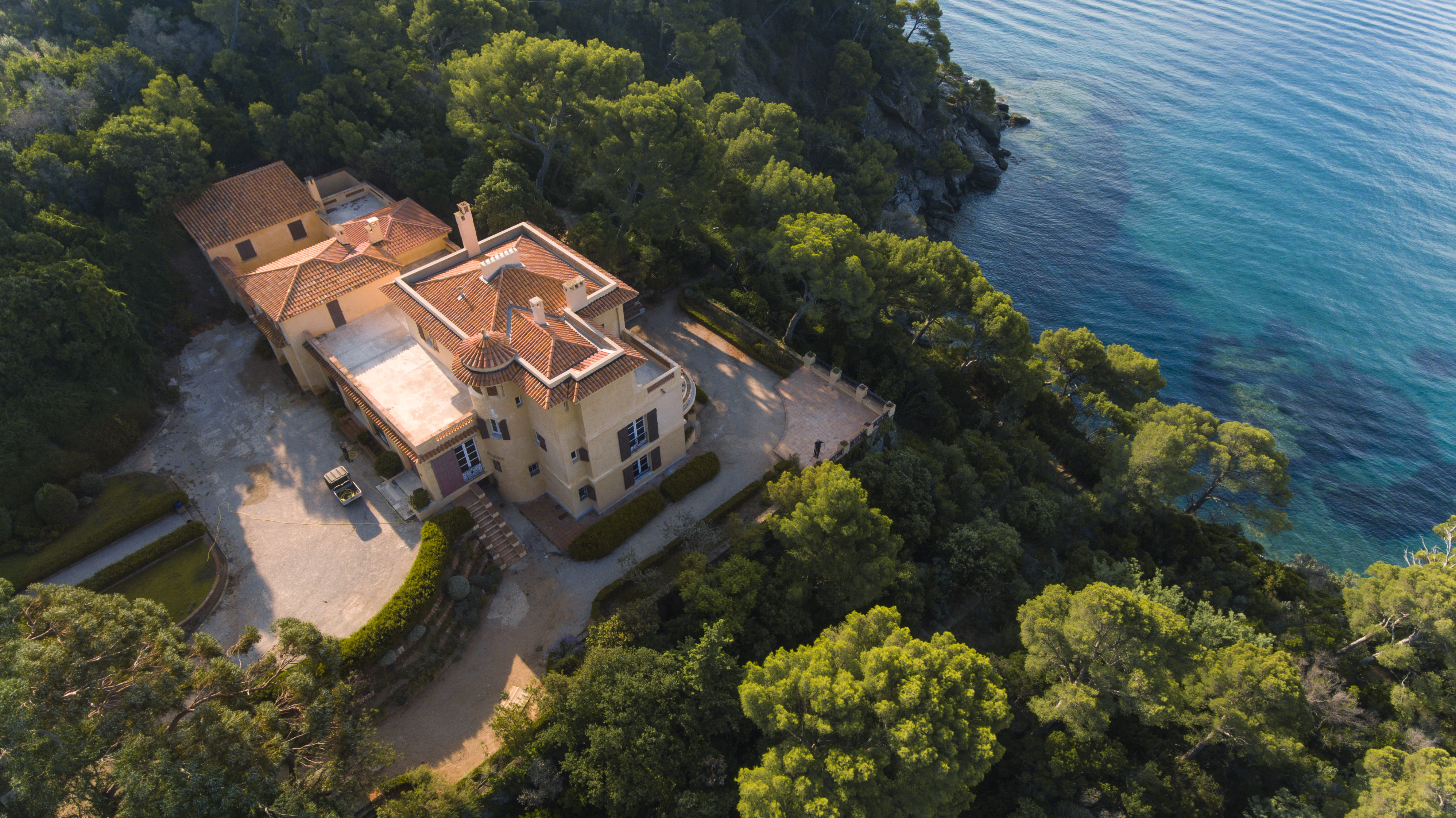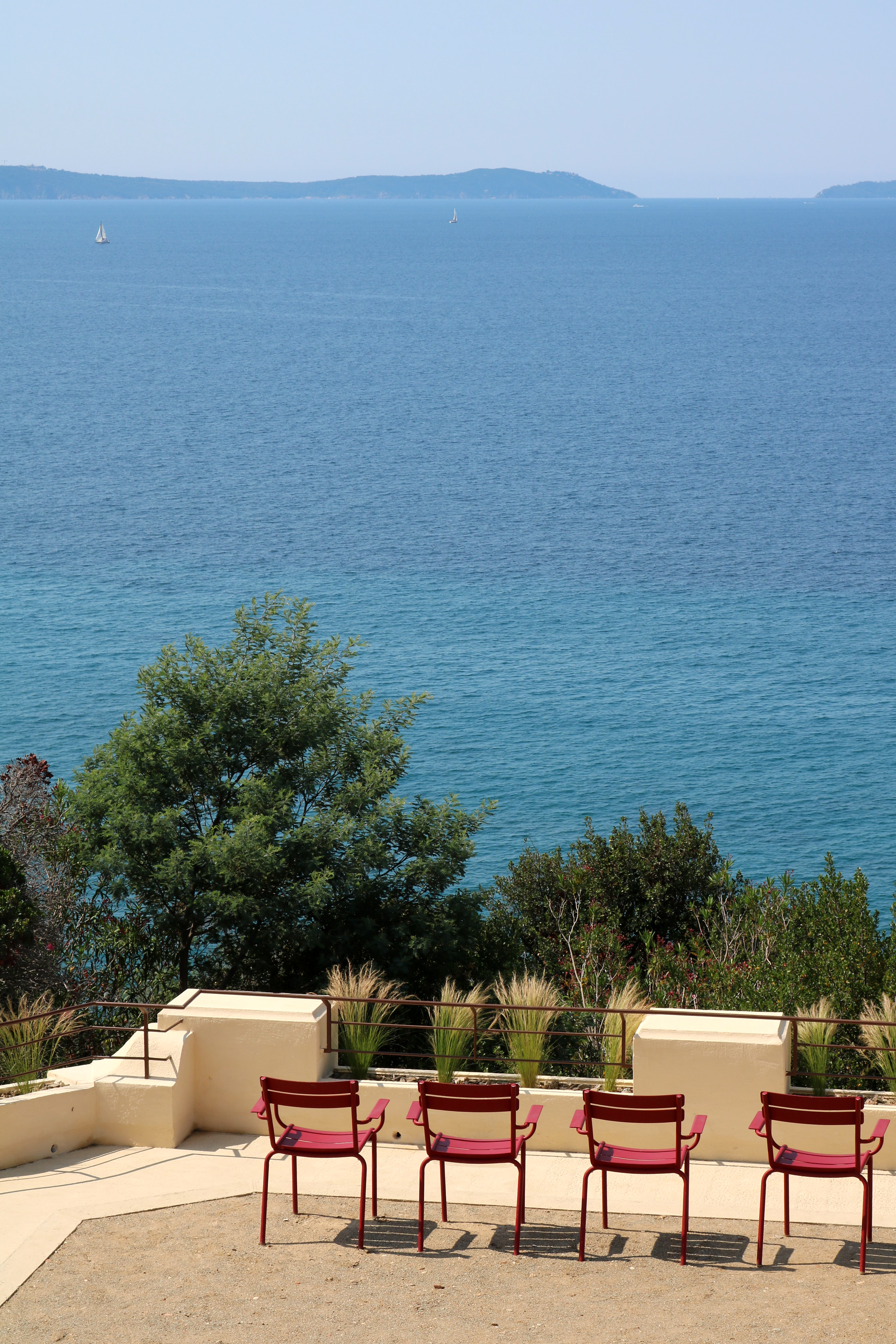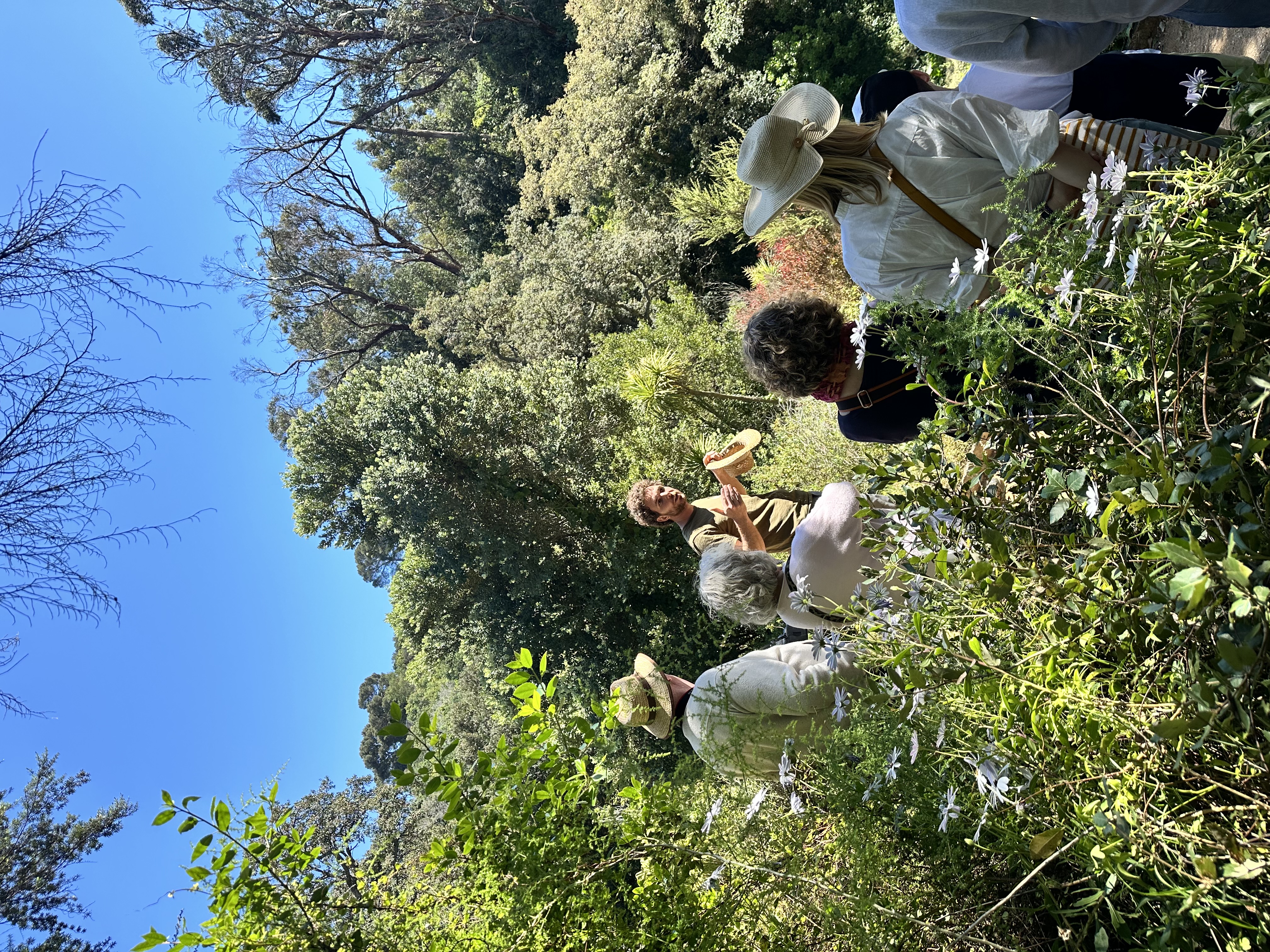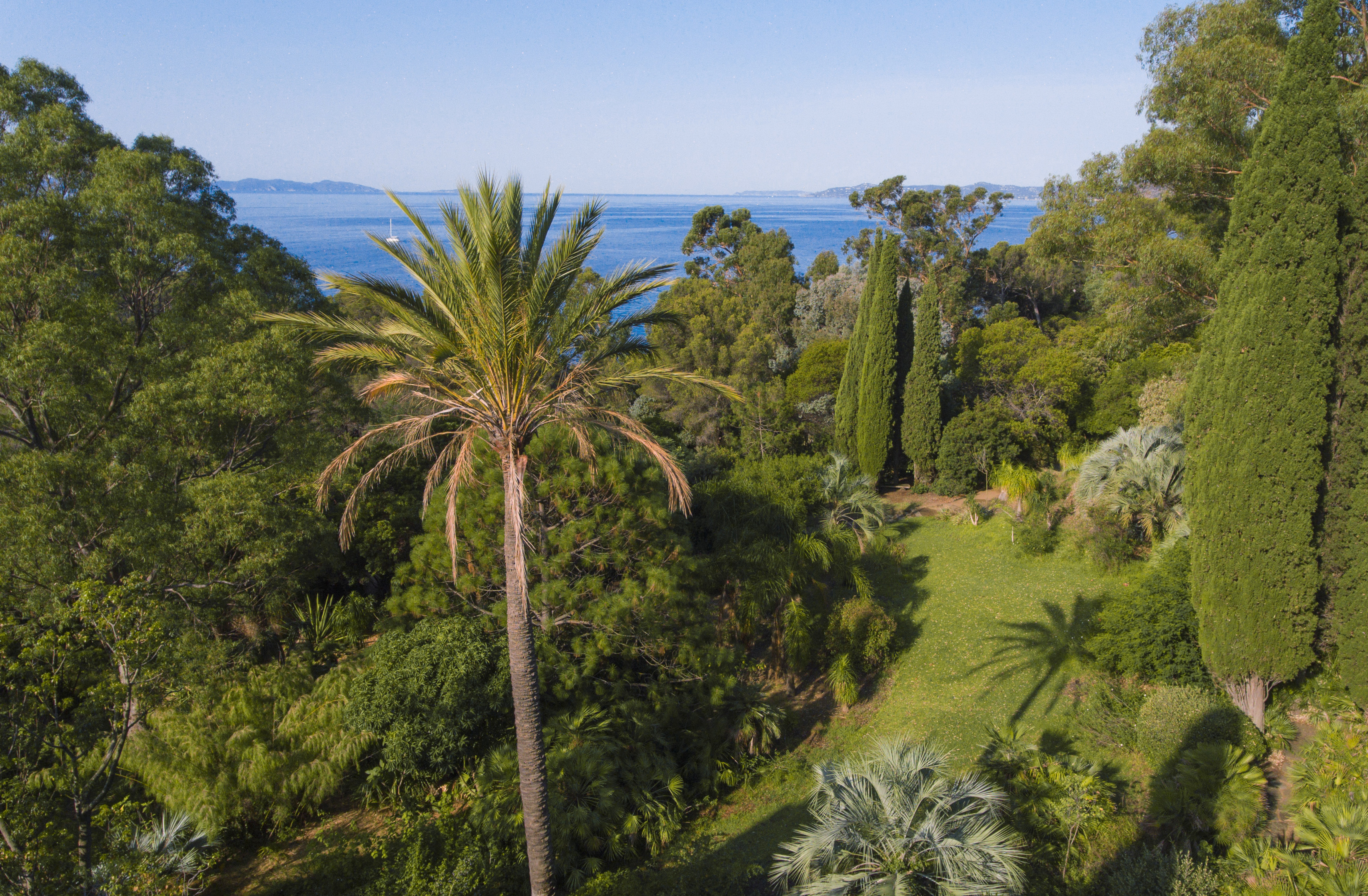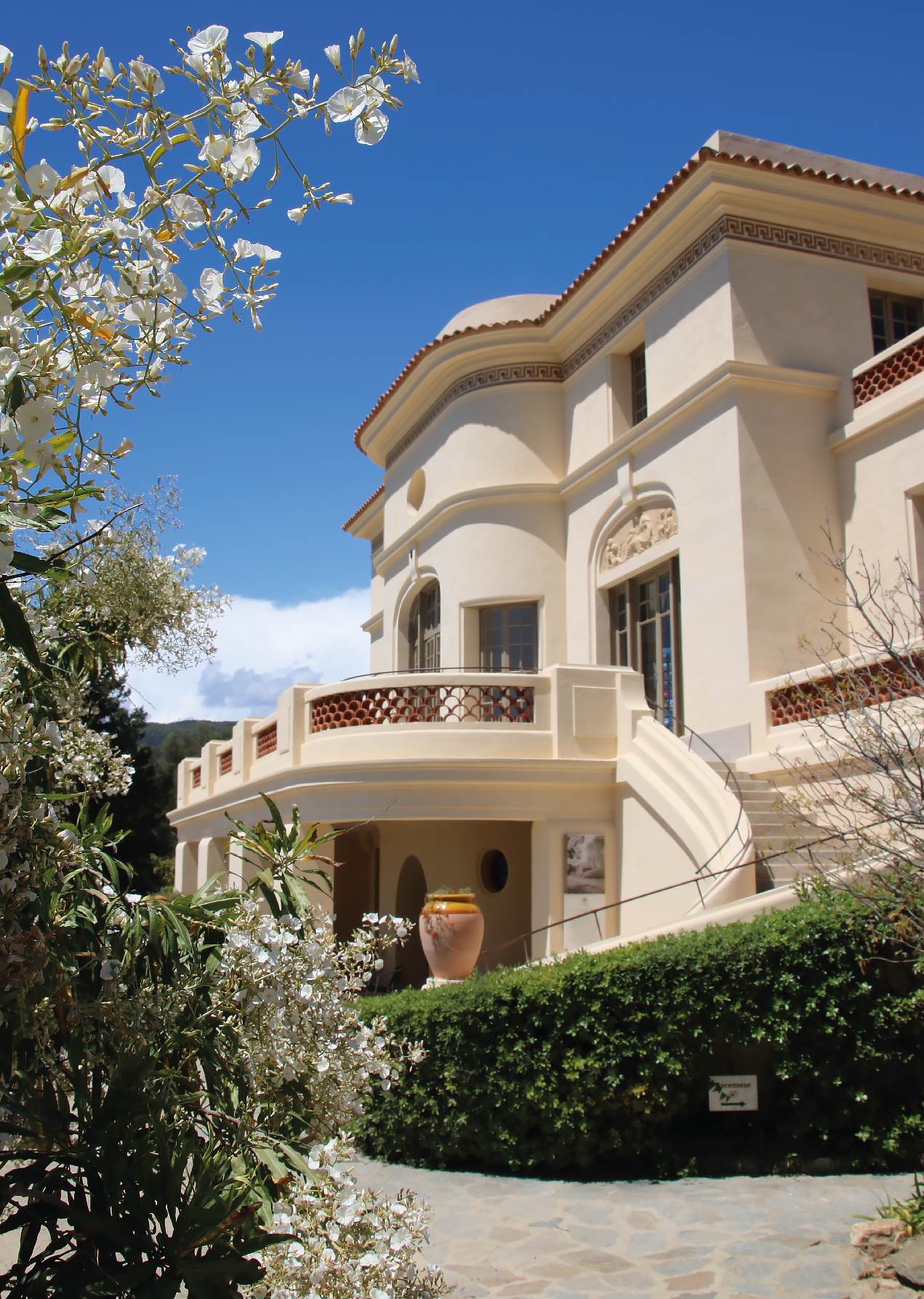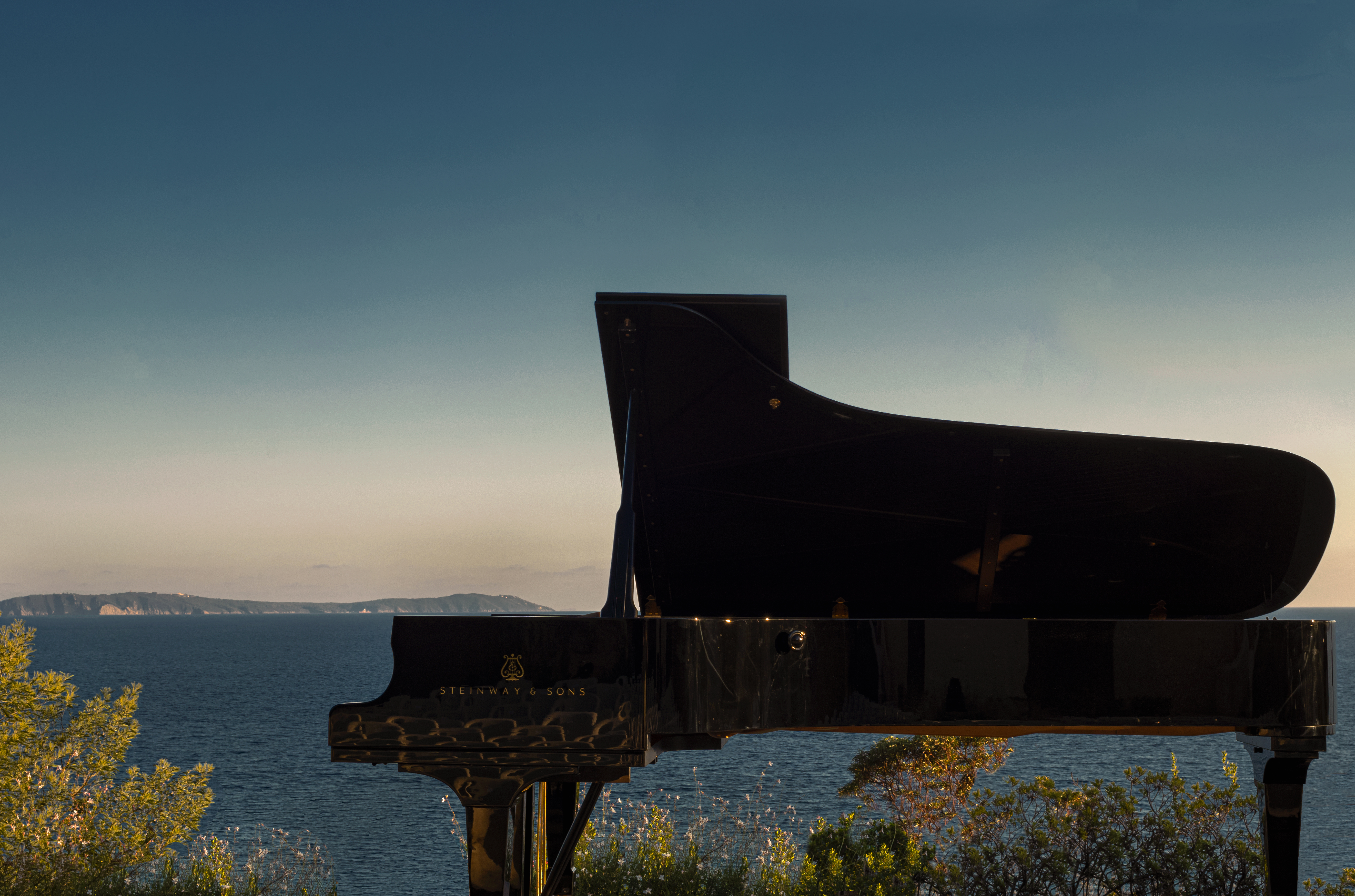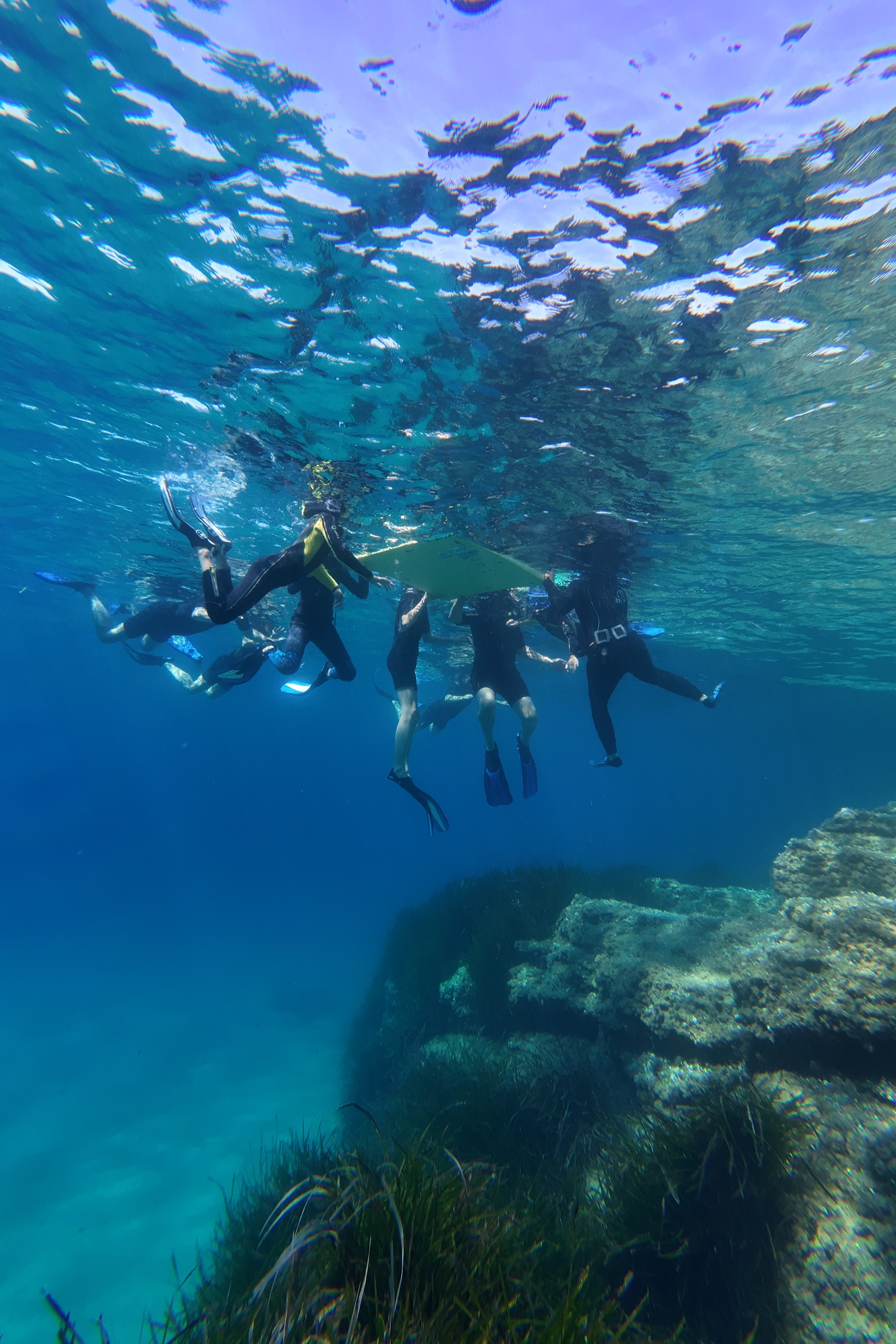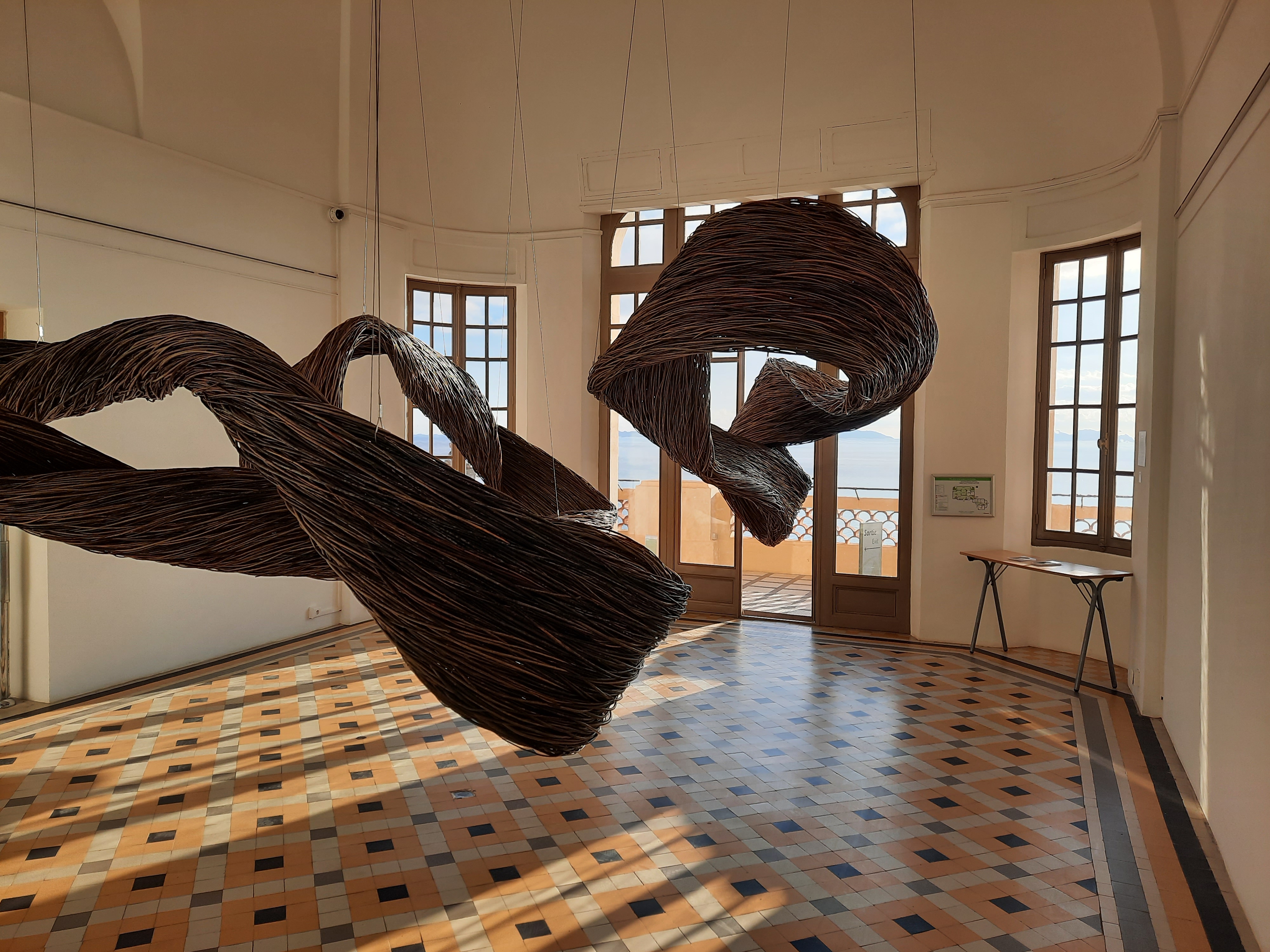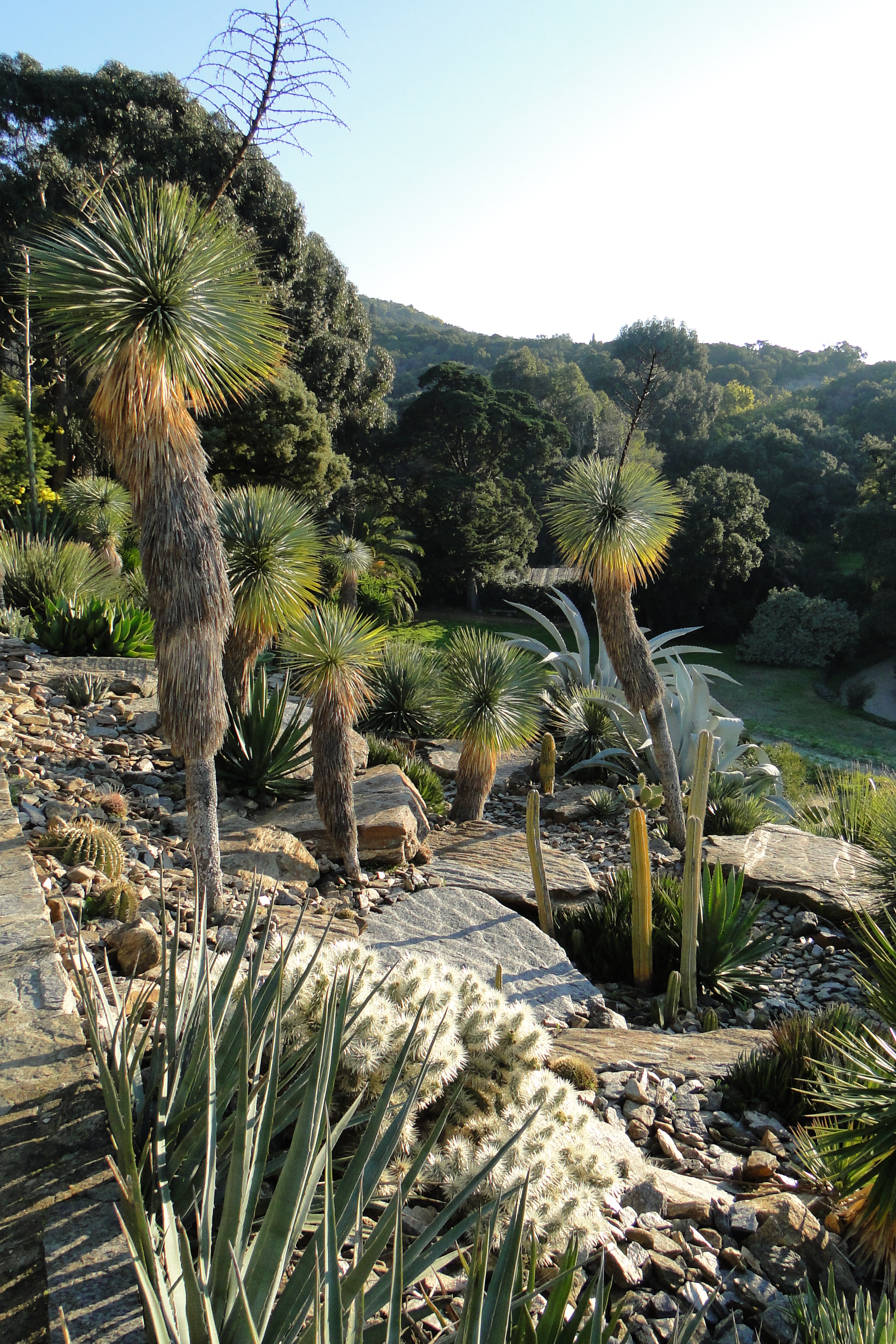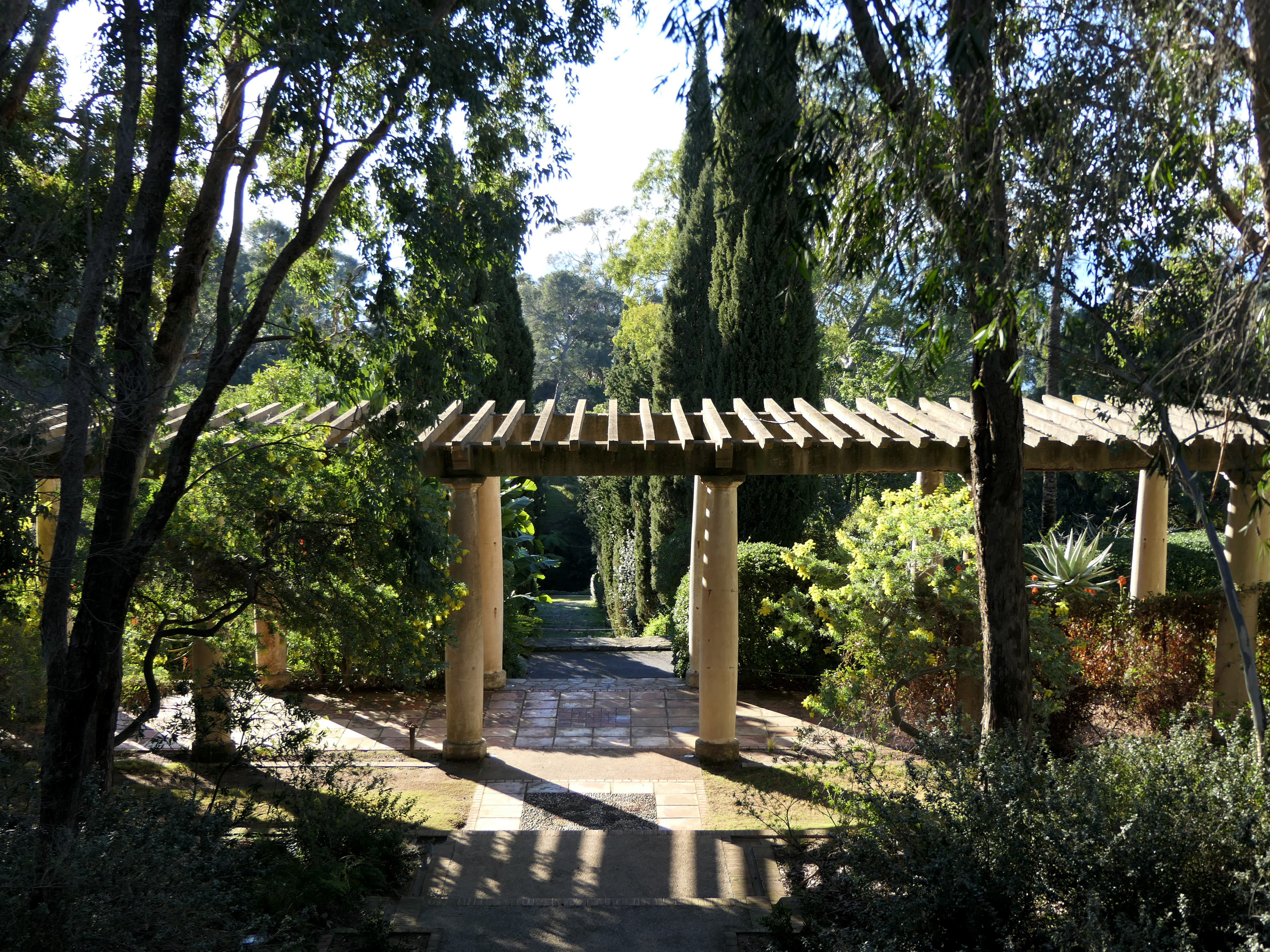The heritage site
On the edge of the cliff, between the Maures mountains and the Hyères islands, the Domaine du Rayol covers 7 hectares of gardens, 13 hectares of scrubland and 14 hectares of protected marine area, in the heart of one of the most beautiful coastal landscapes in the Var. A testament to 20th-century seaside resorts, it preserves a rich architectural heritage: the monumental pergola (1910), the Hôtel de la Mer (1912, recently restored), the Villa Rayolet (1925, listed in the Supplementary Inventory of Historic Monuments) and the Maison de la Plage (1949), which have been renovated to host exhibitions, residences and visitors.
Saved from a property development project in the 1980s and acquired by the Conservatoire du Littoral in 1989, the site is now home to a unique experimental landscape garden designed by landscape architect Gilles Clément. The ‘Jardin des Méditerranées’ showcases landscapes inspired by the world's major Mediterranean climate regions (California, Chile, South Africa, Australia, the Mediterranean basin) in a sensitive and immersive evocation of vegetation. It embodies the vision of a planetary garden, where understanding of living things is achieved through the staging of ecological and cultural diversity.
The cultural project
The cultural project of the Domaine du Rayol is closely linked to its garden, a true manifesto for biodiversity. Ecological management bans chemical inputs, favours natural regeneration and applies the principle of the ‘garden in motion’, dear to Gilles Clément, leaving room for natural dynamics and education by example. This ecological positioning is accompanied by scientific partnerships (notably with ISEN Méditerranée and the RASCASS laboratory) to question our relationship with living things through the prisms of science, art and education.
The estate is developing an ambitious artistic programme linked to environmental issues. Each year, four contemporary art exhibitions are organised, often in direct dialogue with the landscape or the plants. These proposals, rooted in an ecological sensibility, question the fragility of the natural world, the memory of landscapes and, more broadly, the links between art, nature and our way of living with the living world.
The Domaine also supports artistic creation through residencies: visual artists, authors and photographers are regularly invited to stay on site to nurture their work in contact with the teams and the local community. In 2025, a new art and natural sciences residency will enrich this programme. Designed as a time for research and transmission, it will explore communication between non-human living species by combining artistic and scientific practices.
Finally, every summer, the Soirées Romantiques festival offers a series of open-air classical music concerts facing the sea, inviting visitors to enjoy a unique sensory experience combining art and nature.
Activities and initiatives
Every year, the Domaine du Rayol welcomes nearly 95,000 visitors with a varied programme of discovery, education and transmission activities. Daily guided tours, included in the ticket price, offer a sensitive and immersive approach to the Jardin des Méditerranées, complemented by themed walks, audio guides in several languages and seasonal events.
Environmental education is a key focus of the project, with workshops for young visitors (exploring the marine garden, discovering small creatures, sensory games, etc.) and Qualiopi-certified training courses for adults (botany, pruning, zero pesticides, illustration, aromatherapy, etc.). Here, the garden becomes a place for learning, experimentation and sustainable practices.
The site also offers services that promote an eco-friendly approach: a seasonal restaurant that favours short supply chains (the Café des Jardiniers), an ecological nursery for Mediterranean plants, a bookshop specialising in nature, ecology and gardening, as well as spaces for events, seminars and film shoots.
A place of life, art, transmission and landscape, the Domaine du Rayol embodies a holistic approach to life and heritage, in constant dialogue between nature, culture and society.
*associated member

